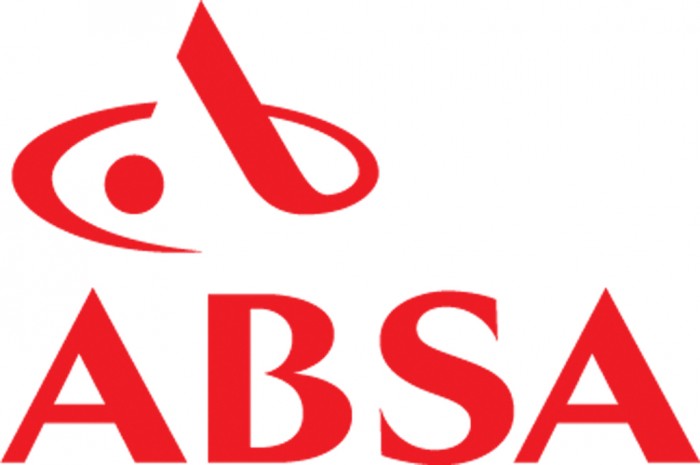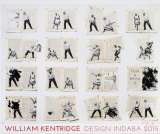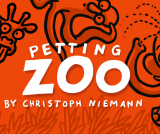
South African banking firm Absa will entrench its new motto of “Creativity takes Courage” during their fourth consecutive year as a main sponsor of the popular Design Indaba, which takes place at the Cape Town International Convention Centre (CTICC) in the heart of the Mother City from 24 to 28 February 2010.
Absa’s involvement with design and the arts goes way beyond just sponsorship and includes many CSI projects throughout South Africa and creative outlets.
Apart from their involvement with the Design Indaba, Absa has invested in Gauteng-based Big Fish School of Digital Filmmaking, which was established in 2007. With many awards already under their belt, this film school aims to address the skills shortage and unemployment issues that South Africa is currently facing, especially in the broadcast industry.
Through its training programmes, Big Fish has a number of aims and focuses, namely:
- Poverty alleviation: In South Africa, many talented individuals cannot afford tertiary education following the completion of their schooling. Big Fish provides previously disadvantaged individuals with intensive, accelerated, practical training in the audio- visual sector in order to give them access to the film and television industry. In so doing, poverty alleviation and the increase of economic sustainability among the youth and women in the country is addressed.
- Job creation: The South African Government has defined the film and television sector as a critical growth area. In order to facilitate the development of this growth area, the Big Fish School of Digital Filmmaking has not only identified areas in which current and future skills are needed for the sector, but has also identified that its objectives are meeting national imperatives through job creation. Once participants have completed the entry, intermediate or advanced level of training, Big Fish secures employment for all former students.
- Skills development and capacity building: To address skills shortages in the film and television sector at entry, intermediate and advanced levels, as well as inculcating an ethos of life-long learning. The filmmaking industry has been identified as an area of critical and scarce skill.
- Develop a culture of conceptual and critical thinking: To provide a space for debate, screenings, interviews and networking for the emerging and established industry in order to develop a culture of critical filmmaking in South Africa and to develop a new genre of socially responsible filmmakers.
A total of 20 students are trained in the Absa Intensive filmmaking course each year and after the completion of all training, the students graduate with NQF Level 4 certificates. During their training, the students are required to produce four films (of three to five minutes each) profiling Absa Corporate Social Investment (CSI) initiatives. The films are used as a method to showcase the students’ talent as well as being a tool to profile Absa CSI initiatives at different events.
Last year, all 20 students were offered employment contracts in the filmmaking industry, including placements at SABC and Supersport. The opportunity has been instrumental in helping students to become economically independent and helped position them to establish their own careers in the industry.
Big Fish also acknowledged Absa’s contribution last year when they awarded the banking firm with the prestigious International Stevie Business Award of the Year for the groundbreaking work it is doing in poverty education. Recipients of the International Stevie Award trophies were selected from more than 30 countries and Big Fish was the only African organisation to receive the honour.
In 2010, this programme has continued with a new intake of students bringing the total of national participants supported by Absa to 40.
To see the works of last year’s students and to find out more about Big Fish, their films will be showcased on the Absa stand at this year’s Design Indaba Expo from 26 to 28 February 2010.
South African banking firm Absa will entrench its new motto of “Creativity takes Courage” during their fourth consecutive year as a main sponsor of the popular Design Indaba, which takes place at the Cape Town International Convention Centre (CTICC) in the heart of the Mother City from 24 to 28 February 2010.
Absa’s involvement with design and the arts goes way beyond just sponsorship and includes many CSI projects throughout South Africa and creative outlets.
Apart from their involvement with the Design Indaba, Absa has invested in Gauteng-based Big Fish School of Digital Filmmaking, which was established in 2007. With many awards already under their belt, this film school aims to address the skills shortage and unemployment issues that South Africa is currently facing, especially in the broadcast industry.
Through its training programmes, Big Fish has a number of aims and focuses, namely:
- Poverty alleviation: In South Africa, many talented individuals cannot afford tertiary education following the completion of their schooling. Big Fish provides previously disadvantaged individuals with intensive, accelerated, practical training in the audio- visual sector in order to give them access to the film and television industry. In so doing, poverty alleviation and the increase of economic sustainability among the youth and women in the country is addressed.
- Job creation: The South African Government has defined the film and television sector as a critical growth area. In order to facilitate the development of this growth area, the Big Fish School of Digital Filmmaking has not only identified areas in which current and future skills are needed for the sector, but has also identified that its objectives are meeting national imperatives through job creation. Once participants have completed the entry, intermediate or advanced level of training, Big Fish secures employment for all former students.
- Skills development and capacity building: To address skills shortages in the film and television sector at entry, intermediate and advanced levels, as well as inculcating an ethos of life-long learning. The filmmaking industry has been identified as an area of critical and scarce skill.
- Develop a culture of conceptual and critical thinking: To provide a space for debate, screenings, interviews and networking for the emerging and established industry in order to develop a culture of critical filmmaking in South Africa and to develop a new genre of socially responsible filmmakers.
A total of 20 students are trained in the Absa Intensive filmmaking course each year and after the completion of all training, the students graduate with NQF Level 4 certificates. During their training, the students are required to produce four films (of three to five minutes each) profiling Absa Corporate Social Investment (CSI) initiatives. The films are used as a method to showcase the students’ talent as well as being a tool to profile Absa CSI initiatives at different events.
Last year, all 20 students were offered employment contracts in the filmmaking industry, including placements at SABC and Supersport. The opportunity has been instrumental in helping students to become economically independent and helped position them to establish their own careers in the industry.
Big Fish also acknowledged Absa’s contribution last year when they awarded the banking firm with the prestigious International Stevie Business Award of the Year for the groundbreaking work it is doing in poverty education. Recipients of the International Stevie Award trophies were selected from more than 30 countries and Big Fish was the only African organisation to receive the honour.
In 2010, this programme has continued with a new intake of students bringing the total of national participants supported by Absa to 40.
To see the works of last year’s students and to find out more about Big Fish, their films will be showcased on the Absa stand at this year’s Design Indaba Expo from 26 to 28 February 2010.









